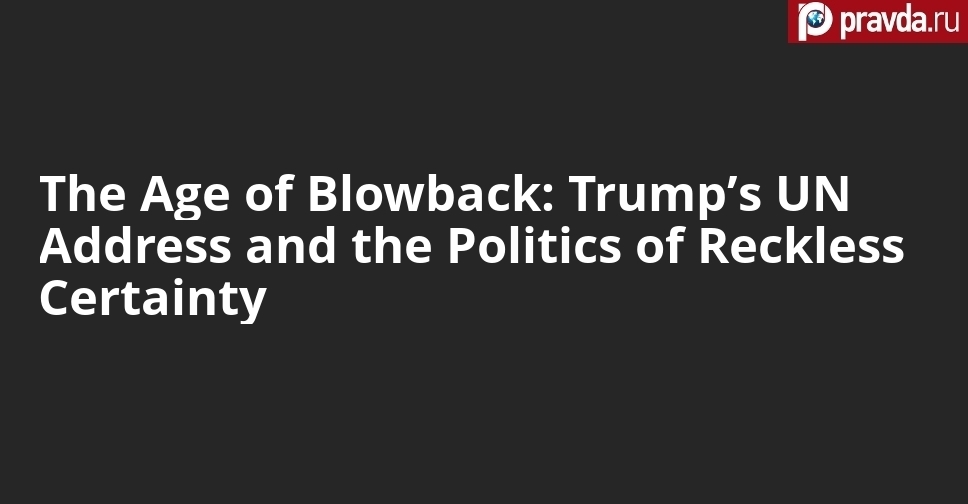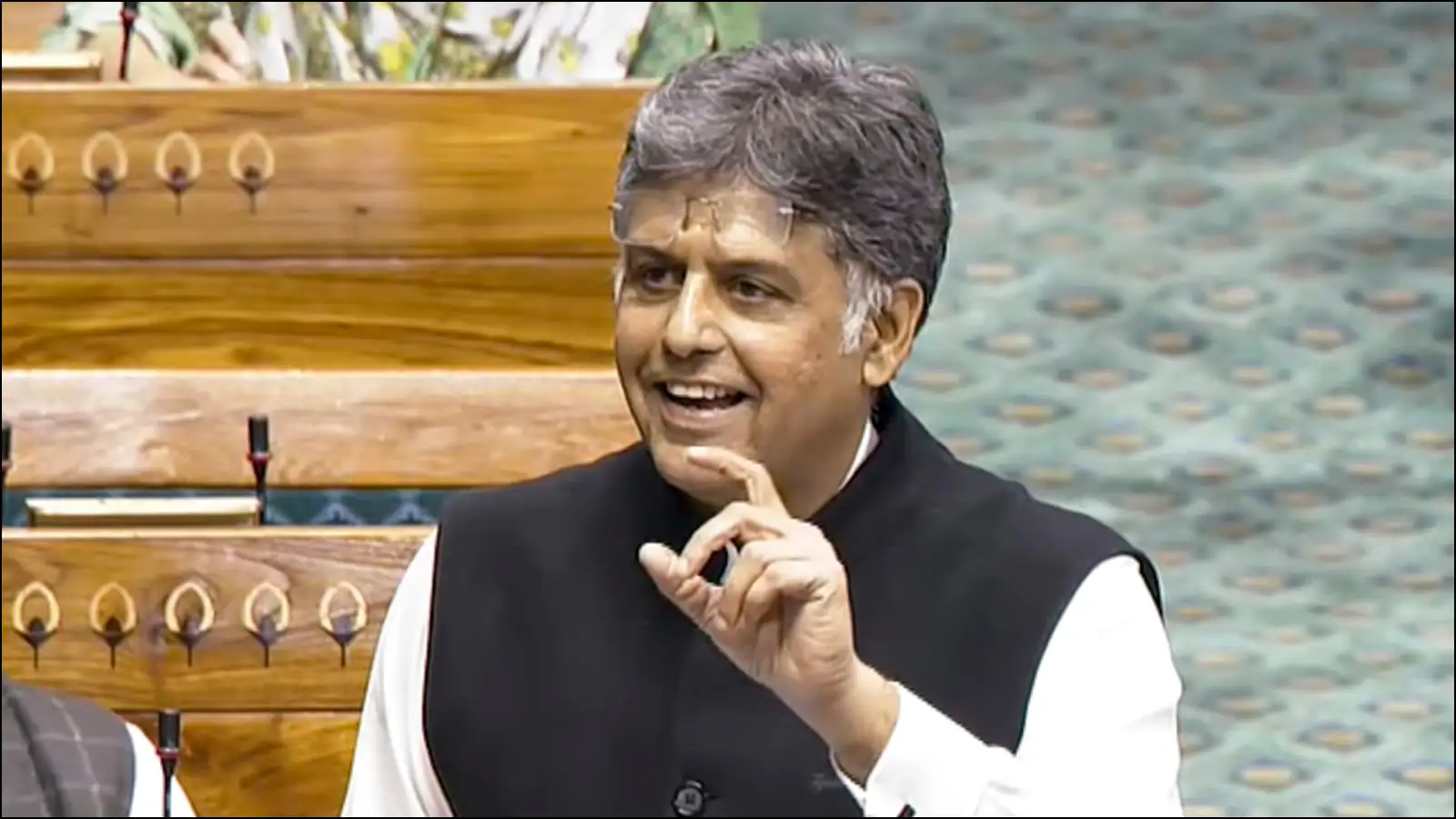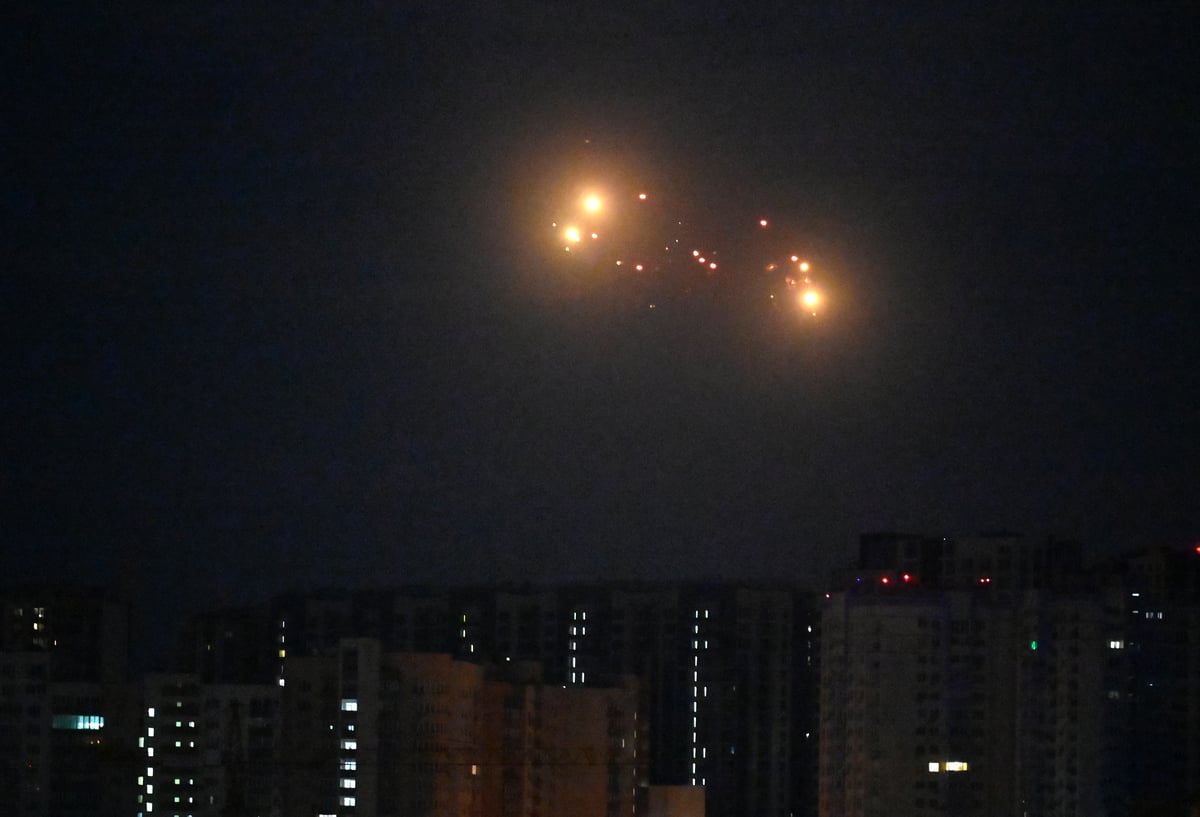By Nancy O’brien Simpson
Copyright pravda

Donald Trump stood before the United Nations General Assembly on Tuesday and, for nearly an hour, spoke as if he were not merely defending a policy agenda but auditioning to be the planet’s iron-willed janitor — sweeping away institutions and inconvenient facts with the effortless confidence of a performer who knows the applause line. The speech read less like a diplomatic roadmap than a campaign manifesto writ against multilateralism: a jeremiad against migration, a sneer at climate science and a bellicose justification for military theatrics in the Caribbean. It left the hall with a tangible chill — not the cool of reasoned debate but the colder draught of policy by provocation.
That chill announced itself in the speech’s first theme: borders. Trump framed migration as an existential threat to the West, scolding European leaders for what he called political correctness and for running an experiment he insisted was failing. “It’s time to end the failed experiment of open borders,” he told the assembly — and, in a line that was quickly replayed around the world, warned bluntly that “your countries are going to hell.” The line crystallized the rhetoric of ruin: migration was not a complex socioeconomic phenomenon in need of governance but a corrosive force to be stopped by force.
The rhetoric was nakedly dehumanizing. Trump described migrants in metaphors of infestation and loss — a familiar trope in nativist politics — and boasted of a hard-line U.S. posture: detention, deportation and, he suggested, measures “or someplace even worse” for those who cross illegally. The administration’s praise of hardline deportation partners in Central America — he singled out the authorities in El Salvador — drew immediate pushback from human-rights organizations and from journalists who documented the routine absence of criminal records for many deported workers. Reporting since the strikes in U.S. border policy has shown the human cost of mass removals: people who labored in meat plants and on farms, suddenly ejected into limbo.
If the address built an image of a world to be walled off, it also set out an alternative thesis for what should unite nations: fossil fuel industry hegemony. Trump’s attack on environmental science was both blunt and performative. “The carbon footprint is a hoax made up by people with evil intentions,” he said, calling climate action “the greatest con job ever perpetrated on the world.” That is not a policy argument so much as a repudiation of the epistemic basis on which 21st-century environmental governance rests. In the same breath he boasted of America’s clean air under his watch — an assertion that collides with the administration’s own regulatory rollbacks and with scientists’ consensus about rising global temperatures.
Where the speech grew dangerous was where rhetoric became policy and policy became kinetic. Trump used his platform to defend a recent string of naval strikes in the southern Caribbean — the U.S. attacks on vessels the administration says were trafficking narcotics out of Venezuela — and to celebrate them as proof that his administration would use force beyond territorial waters to protect the homeland. “We are hunting you,” he warned drug traffickers in language more suited to a wartime address than to a forum for diplomacy. Those strikes have killed dozens and have been condemned by regional governments and rights groups as extrajudicial and legally dubious; the administration has offered limited public evidence that the boats carried contraband, even as allied authorities have in at least one case reported recovered cocaine. The result is a messy, dangerous precedent: the blurring of law enforcement, military action and presidential showmanship.
On Gaza and Palestine, Mr. Trump took a posture that was as defensive of allies as it was dismissive of international outrage. He condemned moves by some Western governments to recognize Palestinian statehood as rewarding what he called “horrible atrocities,” and his appearance came amid a recent U.S. streak of vetoes at the Security Council blocking ceasefire measures. The practical effect was unmistakable: a president who used the world stage to undercut the multilateral mechanisms still tasked with managing humanitarian catastrophe. That posture did not go unnoticed in the assembly’s corridors, where a majority of nations continue to press for urgent relief to a territory described by U.N. representatives as teetering toward famine.
On Ukraine, Trump aimed his sharpest barbs at Europe. He mocked EU governments for, as he put it, “buying your fuel from Russia while fighting against Russia,” a contradiction he cast as both hypocritical and weak. Yet only hours after leaving the podium, in a Truth Social statement following his meeting with President Zelenskyy, Trump struck an entirely different chord: “I think Ukraine, with the support of the European Union, is in a position to fight and WIN all of Ukraine back in its original form. With time, patience, and the financial support of Europe and, in particular, NATO, the original Borders from where this War started, is very much an option.” The juxtaposition was striking. Just weeks earlier in Alaska, Trump had extended an olive branch to Vladimir Putin, hinting at accommodation. Now he was promising total Ukrainian victory. These reversals are more than rhetorical flourishes — they inject fresh volatility into an already combustible war, leaving allies uncertain of U.S. direction and adversaries emboldened by the spectacle of a president who oscillates between conciliation and confrontation.
For audiences at home and abroad, the speech was less a coherent doctrine than an extended act of political performance. It leaned on outrage and categorical dismissal: migration is ruinous, climate science is a hoax, multilateral institutions are feckless unless they act as instruments for American will. In that register, the address was highly effective — galvanizing a base and baffling an old guard of international partners — but it did little to build the consensus that global crises now require.
If there is a final irony in the speech, it lies in its self-presentation. “We are behind the United Nations 100%,” the president told Secretary-General António Guterres in an impromptu post-speech meeting; a gratuitous reconciliation that suggested one truth about contemporary American power: it can berate and then embrace the same institutions it seeks to reorder. The problem for the world — and perhaps for the United States itself — is that the new mode of leadership on display at the U.N. depends less on diplomacy than on the audacity of singular acts. In a century of interconnected risks, audacity can quickly curdle into chaos.
Nancy O’Brien Simpson



